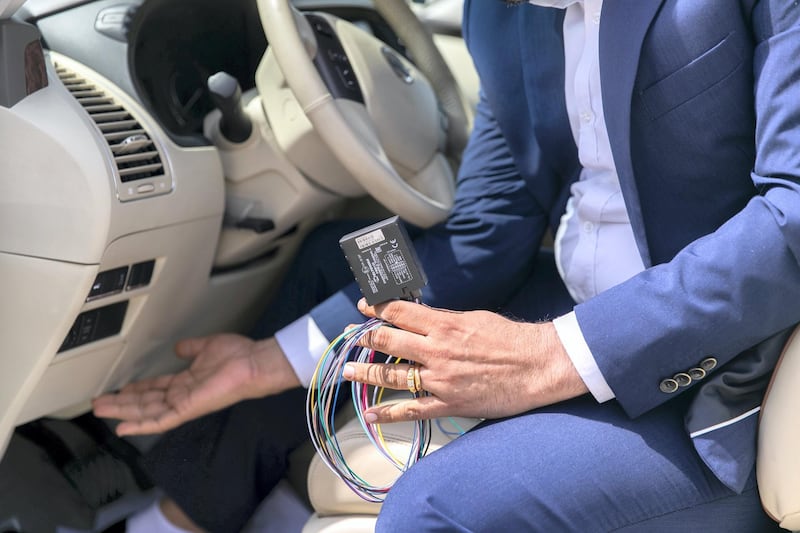Stalkers using tracking devices to spy on others could face jail, a UAE lawyer said.
People use the legal devices – designed to keep track of children, pets and even car keys – to invade the privacy of family members, a retailer said.
Some gadgets, using location-based services and global positioning systems, have a range of only 10 metres while others use real-time tracking.
The misuse of such devices – available in shops and online – could lead to at least six months in jail or a fine of between Dh150,000 and Dh500,000, or both, lawyer Ali Al Hammadi said.
“Tracking people is an act punishable by law and it doesn’t represent our culture and traditions,” he said.
Tracking devices can be found online with a price tag ranging from Dh15 to Dh1,000, depending on the technology. Some electronic retail shops offer Bluetooth tracking devices for as little as Dh100.
One tracking service business owner said customers frequently asked about devices that would allow them to keep tabs on their spouses, despite cybercrime laws that forbid the surveillance of others.
“We receive calls from people who want to use our services to track down their spouses and know their whereabouts but we don’t offer such services as it’s illegal,” said Dinesh Correa, founder of Falcon Trackers in Dubai.
"Some people ask us to install the device in their cars to track the driver taking their children to school but we also can't fulfil their desire."
____________
Read more:
Dubai hospitals to put tracking devices on newborns
‘More care needed for privacy on the web’
____________
Mr Correa said global tracking features such as GPS, location-based services and Wi-Fi devices can be imported into UAE only with approval from the Telecommunications Regulatory Authority.
“We have restrictions about using our devices on personal vehicles and we only install them in vehicles owned by trading, transport, tourism and car rental companies and they should be installed according to the TRA’s specific guidelines,” he said.
Other, similar devices are allowed, Mr Correa said.
“Bluetooth trackers, which have a very short range – such as 10 metres – and the active RFID trackers that can locally track an object within a range of 50 metres, are both unrestricted devices and do not need any approval from any department to be imported and used,” he said.
Mohammed Bakkour, co-founder of Kidguard, a smartwatch that uses GPS technology to help concerned parents find their children, said it was not difficult to track someone, but he urged people not to do it.
“GPS technology is now available in our phones and in many devices,” Mr Bakkour said. “Misusing it is against the law. You can leave your phone in someone’s car and track it or you can buy a GPS tracking device online and use it to track others.
“It’s not that difficult but it isn’t worth the risk.”
Mr Bakkour said that more restrictions should be put in place and people should be more aware of the consequences of their actions.
“Knowing what would happen if you use the device in illegal ways is the first step to prevent the misuse of it, along with adding more restrictions on selling and buying such devices.”






